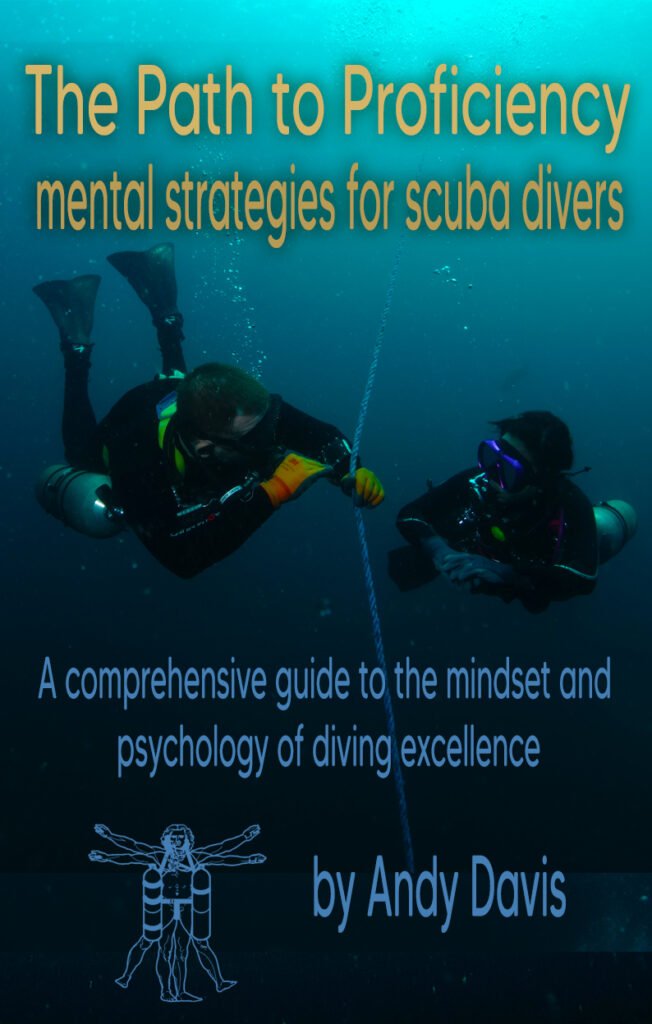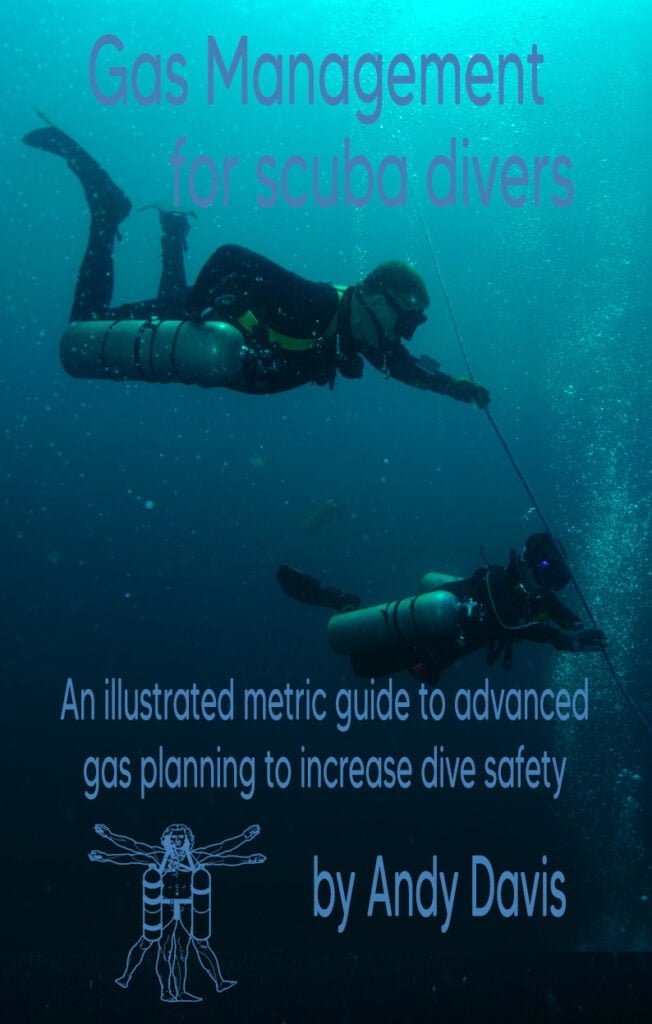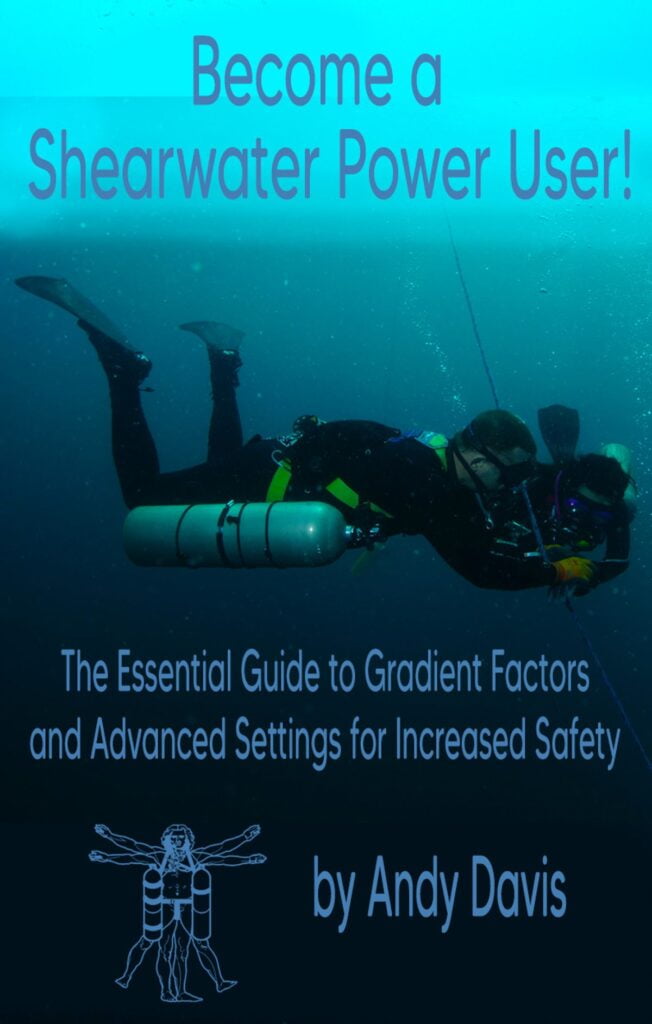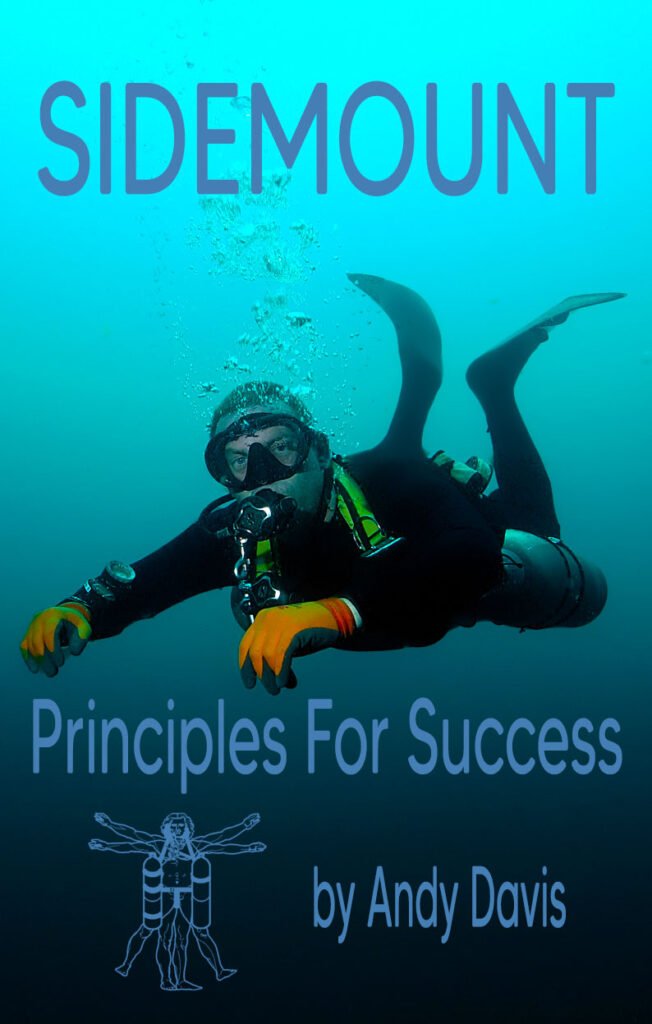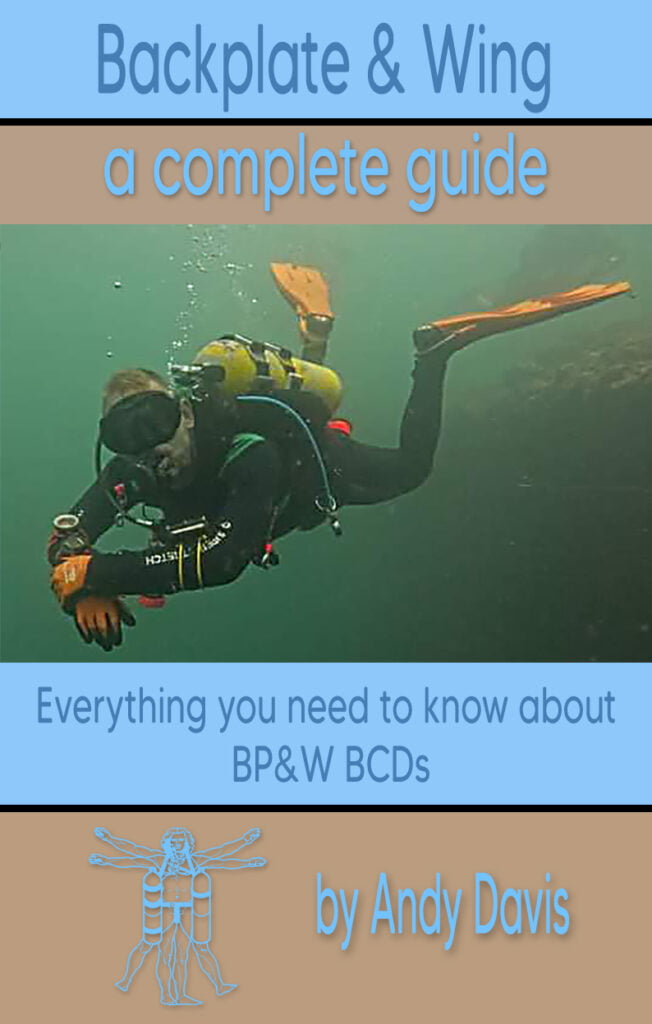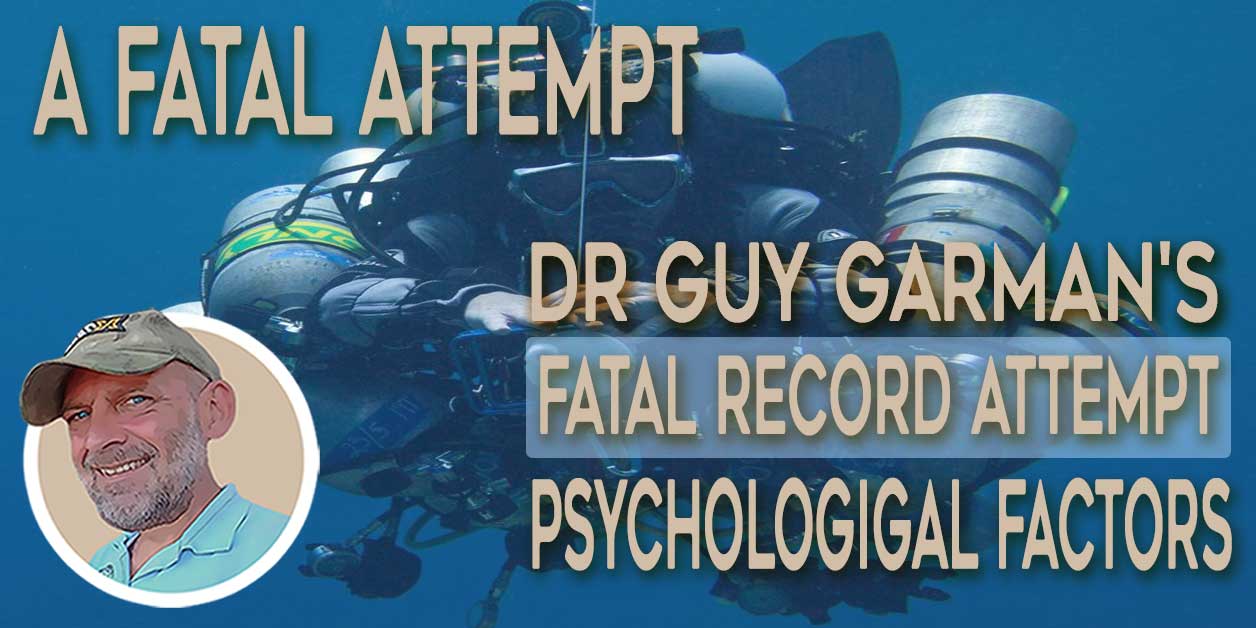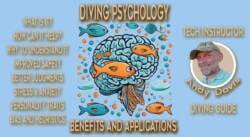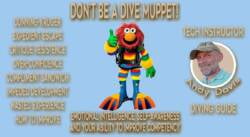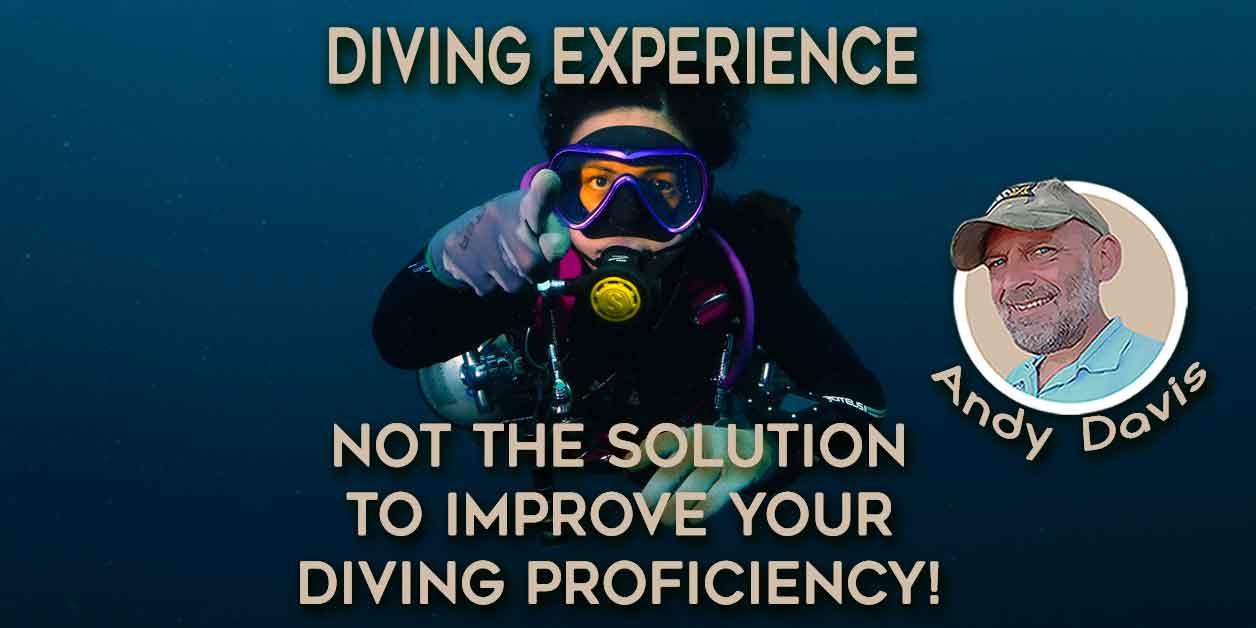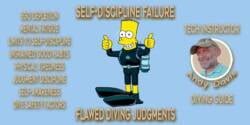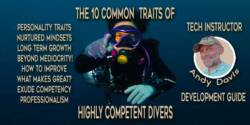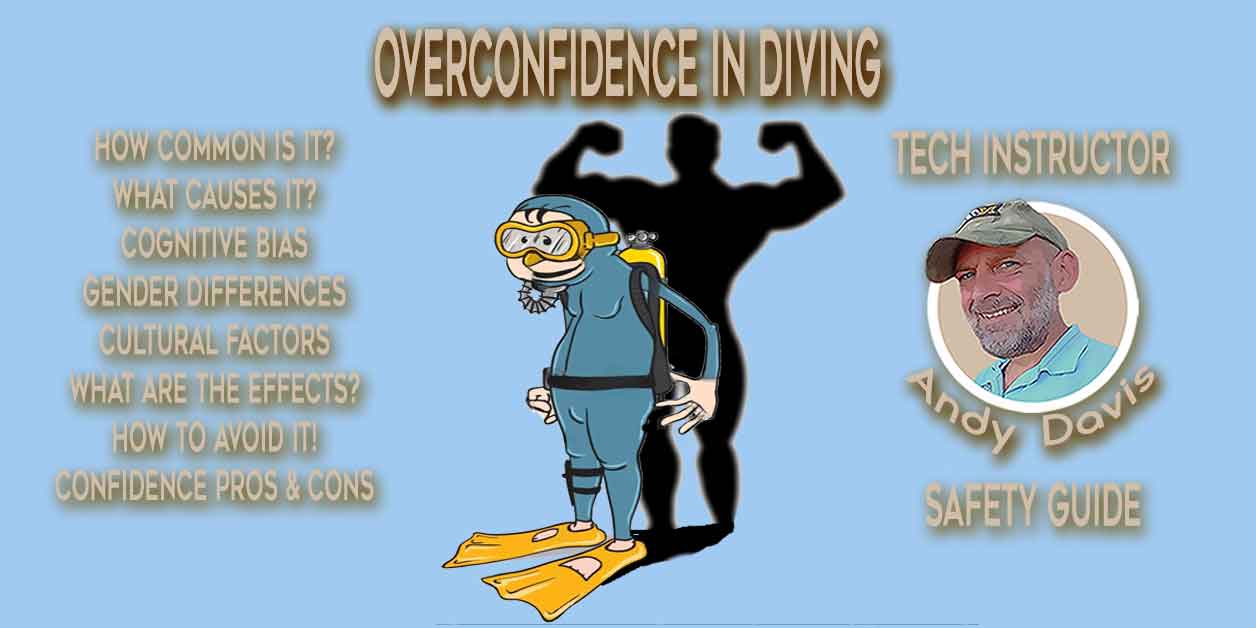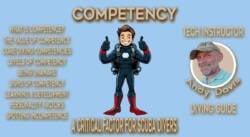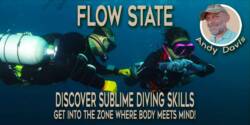What is Diving Experience? Can it Define an Expert Diver?
How often have you heard someone referred to as “an experienced diver“? The term ‘diving experience’ is used very frequently within the scuba diving community. Have you considered what it means?
Many divers wrongly assume that diving experience is a measure of diver proficiency and capability. In this article, I will explain what diving experience is. Furthermore, I will explain how diving expertise is an entirely different thing. As a consequence, you will be better informed to develop your diving ability in the future.
The difference between diving experience and diving expertise
Before we dive into the topic, let’s first understand what experience and expertise mean in the context of scuba diving.
- Diving experience: Experience refers to the amount of time you’ve spent underwater, the number of dives you’ve completed, and the variety of diving situations you’ve encountered.
- Diving expertise: Expertise refers to your knowledge and skills in scuba diving. This includes knowledge about dive theory, equipment, diving techniques, and safety procedures.
Experience and expertise are two related concepts, but they differ in important ways. While experience is acquired over time, it does not necessarily equate to expertise. A diver can have hundreds of dives under their belt, but still lack the necessary skills and knowledge to handle certain situations underwater.
One way to understand the difference between experience and expertise is by looking at the relationship between the two concepts. According to the research highlighted in the book Peak by Anders Ericsson, experience alone cannot guarantee expertise.
While experience contributes heavily to expertise, it is not sufficient to become an expert diver. In some cases, performance can decline with experience. Therefore, expertise is a more accurate indicator of competency than experience.
Familiarity versus knowledge and skill
Diving experience refers to the range of familiarity that is acquired over a period of time. That is typically through exposure to an increasing scope of diving activities and environments.
On the other hand, diving expertise refers to the depth of knowledge and skill. It is acquired through focused training and deliberate practice. As such, it is not necessarily dependent on the amount of time someone has been diving.
Knowing versus performing
Another way to think about the difference is that experience is about knowing, while expertise is about performing. Experience can be gained through participation. In contrast, expertise requires the application of learned knowledge and practiced techniques to real-world situations.
As an analogy, consider the difference between a music aficionado and a professional musician. One enjoys listening to and playing music. They can learn a lot from that over time. The other practices diligently every day and seeks out the best possible tuition. As a result, there’s no way to guarantee the ability of a music aficionado. In contrast, the ability of a professional musician is easily quantified.
Expertise also goes beyond just personal experience. It involves having a deep understanding of a specific diving field. Expert divers continually update their knowledge from external sources. Additionally, they think about the connections between their knowledge and how it can be applied in different contexts.
Table of key characteristics
The following table outlines key characteristics that differentiate an experienced diver from an expert diver.
Characteristics | Experienced Diver | Expert Diver |
|---|---|---|
Definition | Refers to the practical knowledge and ability gained from scuba diving over time | Refers to specialist knowledge and skill in diving gained through continual dive training |
Acquisition | Gained through trial and error, learning from mistakes, and exposure to different situations | Acquired through formal courses, coaching, mentoring, and deliberate practice |
Timescale | Takes time to accumulate and develop | Can be gained in a shorter time frame |
Scope | Generalist Not necessarily focused on one specific area | Specialist Focused on a particular diving field or activity |
Performance | May not necessarily guarantee high performance | Typically produces high performance |
Adaptability | May be adaptable to various situations and contexts | May not necessarily be adaptable to situations outside of their area of expertise |
Assessment | May be difficult to assess due to a subjective nature | Can be assessed and measured through certifications and evaluations |
Importance | Can be just as valuable as expertise in certain diving situations | Essential for specialist, high-risk, and advanced diving activities |
Overall, experience does not reflect expertise. However, an expert diver is likely to have a significant amount of experience.
That said, diving expertise becomes increasingly specialized as it progresses. Greater focus on a specific diving niche precludes the opportunity to develop broader-ranging proficiencies.
As such, expertise becomes less transferable or relevant to comparable levels of diving outside of that specialization. For instance, a high-level CCR cave diver would not be equally expert in ultra-deep ocean wreck exploration.
Scuba diving experience
Experience in scuba diving includes familiarity with different dive equipment, dive locations, and conditions. In turn, that familiarity can be drawn upon to handle novel scenarios.
Experienced divers have likely encountered various situations and learned from their mistakes. Consequently, this makes them better equipped to handle challenges in the future.
That said, experience alone does not guarantee competency. To learn from their mistakes, a diver also requires a level of self-awareness and a mindset that favors progressive improvement.
Table of diving experience levels
Level of Experience | Decision Making | Logged Time | Difficulty of Dives | Range of Diving |
|---|---|---|---|---|
Novice | Relies on Dive Pro or Buddy | Fewer than 50 hours | Shallow, Easy | Underwater Tours |
Intermediate | Self Sufficient | 50+ hours | Moderate | Speciality Diving |
Advanced | Able to lead dives | 250+ hours | Challenging | Broad and Diverse |
Master | Able to mentor | 1000+ hours | Complex | Specialist |
Elite | Sought after for advice | 2000+ hours | High Risk | Highly Specialist |
The importance of diving experience
Experience is crucial in scuba diving because it allows divers to become comfortable and familiar with the underwater environment. It enables them to adapt to different conditions, such as currents, visibility, and depth.
Experienced divers can also handle unexpected situations more effectively, such as equipment failure, navigation errors, and emergencies.
Although, that ability is dictated by their previous exposure to similar circumstances. It is possible for a diver to gain substantial experience and still not have encountered any failures or emergencies.
Quality versus quantity of diving experience
When it comes to developing diving abilities, the age-old debate of quality versus quantity of experience arises. While both quality and quantity of experience are important, it’s essential to understand the differences between the two.
Quality of diving experience
Quality diving experience refers to the learning richness of the experience. It involves the opportunity to acquire knowledge and skills that are relevant and transferable to future situations.
Quality experience often involves challenging tasks that push divers out of their comfort zones and allow for growth and development.
Similarly, underwater emergencies, accidents, and near-misses are also an important part of quality experience. These offer unique lessons and can be fundamental in developing the diver’s mindset and attitude when diving.
Quantity of diving experience
In contrast, quantity experience is about the sheer volume of diving that is logged, regardless of the developmental opportunity it provided.
One potential drawback of quantity experience is that can lead divers to become stuck in their ways. As such, it can promote stubbornness that resists adapting to emerging best practices, new knowledge, and modern dive gear.
As a result, those divers can refuse to adapt to change when it would improve their safety or performance. Being stuck in outdated methods and combining unintentional ignorance with arrogance is a recipe for disaster. It is crucial to remain open-minded and embrace change as a scuba diver.
How to gain quality experience
Both quality and quantity of experience play a role in developing one’s ability. Whilst quality experience is more critical for development than quantity, a diver is only likely to gain certain experience as a result of performing a larger number of dives.
Thankfully, diving accidents and near-misses happen infrequently. But, if you dive enough times, the number of problems you encounter will rise.
No dive will provide quality experience unless the diver consciously seeks to learn lessons from it. Conversely, almost any dive can provide some quality experience if the diver diligently analyzes it for developmental lessons.
Specific versus transferable diving experience
It is important to consider that there are two types of diving experience: specific and transferable.
Specific experience refers to particular lessons learned that are situationally dependent. Transferable experience, on the other hand, refers to familiarity that can be adapted and applied to a variety of circumstances.
Specific diving experience
Specific diving experience is directly related to uncommon situations that require a pre-determined response. For example, having dealt with a regulator failure or rescuing an unresponsive diver at depth.
Transferable diving experience
Transferable experience, on the other hand, relates to common situations and frequently re-occurring issues. In turn, that foundation of insights can be adapted for improved decision-making. Some examples of transferable experience include:
- Dive planning: A diver’s experience with navigation, gas management, communication, and risk awareness can all be translated from one dive to another.
- Problem-solving: Past diving experiences can be re-called to provide solutions to current problems.
- Communication skills: From experience, the diver becomes more adept in clearly communicating ideas, plans, or intentions.
- Risk awareness: The diver gains a real-world appreciation of an increasing spectrum of diving risks. Similarly, the diver will develop better stress management as a result of these risk exposures.
- Dive leadership: This encompasses other transferable skills like communication, problem-solving, and risk awareness. In turn, that experience enables them to more proactively influence the conduct of dives.
The risks of overreliance on diving experience
While experience is essential in scuba diving, it can also lead to complacency and overconfidence. In that instance, the diving experience can reduce safety.
While gaining experience enhances a diver’s level of comfort and confidence in the water, the diver’s practical skillset is critical for dealing with emergencies. Performing a lot of uneventful dives has little bearing on a diver’s skillset for worst-case scenarios.
Divers who have many dives under their belt may feel that they have seen it all. As a result, they become lax in their preparation and execution of dives. This can lead to poor decision-making, which can result in accidents.
Moreover, overreliance on experience can lead to a false sense of security. Divers may feel that they can handle any situation because they have encountered similar situations in the past. However, every dive is unique and unexpected situations can arise at any time.
Purchase my exclusive ebook!
A comprehensive guide to the mindset and psychology of diving excellence.
$20 Printable PDF Format, 298 pages
Scuba diving expertise
Expertise in scuba diving refers to the in-depth knowledge and skill that progresses from generalist to increasingly specialist focus.
That includes knowledge of:
- Diving physics and physiology
- Decompression theory
- Diver psychology
- Stress management
- Advanced diving techniques
- Specialized diving equipment
- Multiple diving philosophies
- Diving best practices
Additionally, an expert diver is likely to have specialized training in areas such as:
- Advanced wreck diving
- Cave diving
- Technical diving
- CCR diving
The traits of expert divers
Diving experts can exhibit a variety of personality traits and behavioral characteristics, but some common ones include:
- Passion and dedication: These divers are often deeply passionate about their field and are dedicated to mastering it. They may spend countless hours practicing and refining their skills.
- Persistence and perseverance: When faced with setbacks and challenges, they persist in their efforts to achieve goals.
- Curiosity and a desire to learn: They are driven by a desire to constantly learn and expand their knowledge. Additionally, they are open to new ideas and are willing to challenge their assumptions.
- Attention to detail: They have a keen eye for detail and can notice even small nuances in dive gear configuration, procedures, and skills.
- Confidence and assertiveness: They can have a high degree of confidence in their abilities and knowledge. As a result, they can be assertive in presenting their ideas and perspectives.
The significance of expertise
Expertise is important in higher-level diving because it enables divers to handle dangerous situations safely and efficiently. For instance, it may include specialist skills such as search procedures in a cave, planning a hypoxic trimix dive, or responding to a stuck CCR oxygen solenoid.
In every example, a successful outcome is dependent upon specialized skills and knowledge that cannot be gained from general diving experience alone. Expert divers can anticipate potential problems and take preventive measures to avoid them.
Two types of diving expertise
Diving expertise can be divided into two categories:
- Functional expertise
- Accorded expertise
Functional experts
Functional expertise refers to the objective level of knowledge and skills acquired through study, deliberate practice, and experience. As such, it describes the scope and limits of an expert diver’s real-world diving capability.
Alternatively, it can describe a peak level of theoretical understanding. For instance, Simon Mitchell in the field of theoretical diving research, and Mark Powell as an educator in decompression theory.
Accorded experts
On the other hand, accorded expertise refers to the recognition of expertise by others in a particular diving field. It can be based on peer reputation, however, it can also result from self-promotion or association with an authoritative body; such as a dive training agency. Accorded expertise is often recognized through dive industry awards.
Accorded expertise describes a diver’s expert authority. As such, it defines their ability to influence others within their given diving field, or the dive industry as a whole.
In most cases accorded expertise reflects functional expertise, but that is not always the case.
Continuous learning to develop diving expertise
What sets expert divers apart is their curiosity and an insatiable desire to learn.
This involves taking courses, reading books, watching videos, and diving with more experienced mentors. By doing so, divers can expand their knowledge and skills, and become more confident and competent underwater.
Continuous learning and improvement also enable divers to stay up-to-date with the latest dive technology, equipment, and techniques. It allows them to make informed decisions and avoid risks.
Balancing diving experience and expertise
So, how do you balance experience and expertise in scuba diving? The key is to prioritize both.
As a beginner, your focus should be on gaining experience. Dive as much as possible and expose yourself to different diving situations. But at the same time, invest in your expertise. Take courses and learn about dive theory, equipment, and safety procedures.
As you gain more experience, start focusing on improving your expertise. Take increasingly advanced diving courses. Also, consider what fields of diving you might be passionate about. If you will specialize in the future, it pays dividends to begin with the end in mind. This will not only make you a better diver but also open up new opportunities for rewarding diving.
Diving experience
In conclusion, acquiring diving experience and striving towards expertise both contribute to increasing safety and enjoyment in scuba diving. However, they are not interchangeable terms.
Experience describes increasing familiarity with diving. That, in turn, provides opportunities for lessons to be learned. In contrast, expertise trains and educates divers to handle the risks of increasingly specialist diving activities safely and efficiently.
As a scuba diver, you should continually strive to improve your skills and knowledge for the diving you undertake. Simultaneously, you should aim to acquire quality experience and take advantage of the learning opportunities it presents. By doing so, they can enjoy the thrill of scuba diving while minimizing the risks.
Article sources:
Experience and Risk, by Karl Shreeves
The Effect of Experience on Risk, by Peter Buzzacott, Ph.D.
Peak: Secrets from the New Science of Expertise, by Anders Ericsson
Experience Vs. Expertise, by José Duarte
The Difference Between Experience And Expertise, by John Jennings.
Experience vs. Expertise: What’s the Difference and Why Does It Matter? by James Anderson.
Expertise Versus Experience: Which Is More Important? by Jeff Beals.
About The Author

Andy Davis is a RAID, PADI TecRec, ANDI, BSAC, and SSI-qualified independent technical diving instructor who specializes in teaching sidemount, trimix, and advanced wreck diving courses.
Currently residing in Subic Bay, Philippines; he has amassed more than 10,000 open-circuit and CCR dives over three decades of challenging diving across the globe.
Andy has published numerous diving magazine articles and designed advanced certification courses for several dive training agencies, He regularly tests and reviews new dive gear for scuba equipment manufacturers. Andy is currently writing a series of advanced diving books and creating a range of tech diving clothing and accessories.
Prior to becoming a professional technical diving educator in 2006, Andy was a commissioned officer in the Royal Air Force and has served in Iraq, Afghanistan, Belize, and Cyprus.
In 2023, Andy was named in the “Who’s Who of Sidemount” list by GUE InDepth Magazine.
Purchase my exclusive diving ebooks!
Diving experience FAQ
An experienced diver has spent a considerable amount of time underwater and is familiar with a variety of diving situations and activities.
Experience is relative to the diving environment and activity. Below 50 dives are considered a novice. Less than 250 dives are intermediate. An advanced diver will have 250-1000 dives. Beyond that, elite-level divers can have thousands of dives.
Scuba diving depth limits are determined by certification level. Experience alone does not ensure the correct training, skills, and procedures are acquired.
No, diving experience does not ensure that knowledge and skill proficiency is developed. Without training and practice, experience alone can cause worse performance and reduced safety.
An intermediate-level diver will have between 50 and 250 dives. During that stage, they may be expected to develop self-sufficiency underwater, partake in specialty diving and conduct moderately difficult dives.
An advanced diver will have between 250 and 1000 dives. During that stage, they will develop dive leadership, participate in a diverse range of diving and conduct challenging dives.
A master diver will have over 1000 dives. They are capable of mentoring other divers, performing highly specialist diving activities, and conducting complex dives.
Originally posted 2023-03-31 16:07:56.

